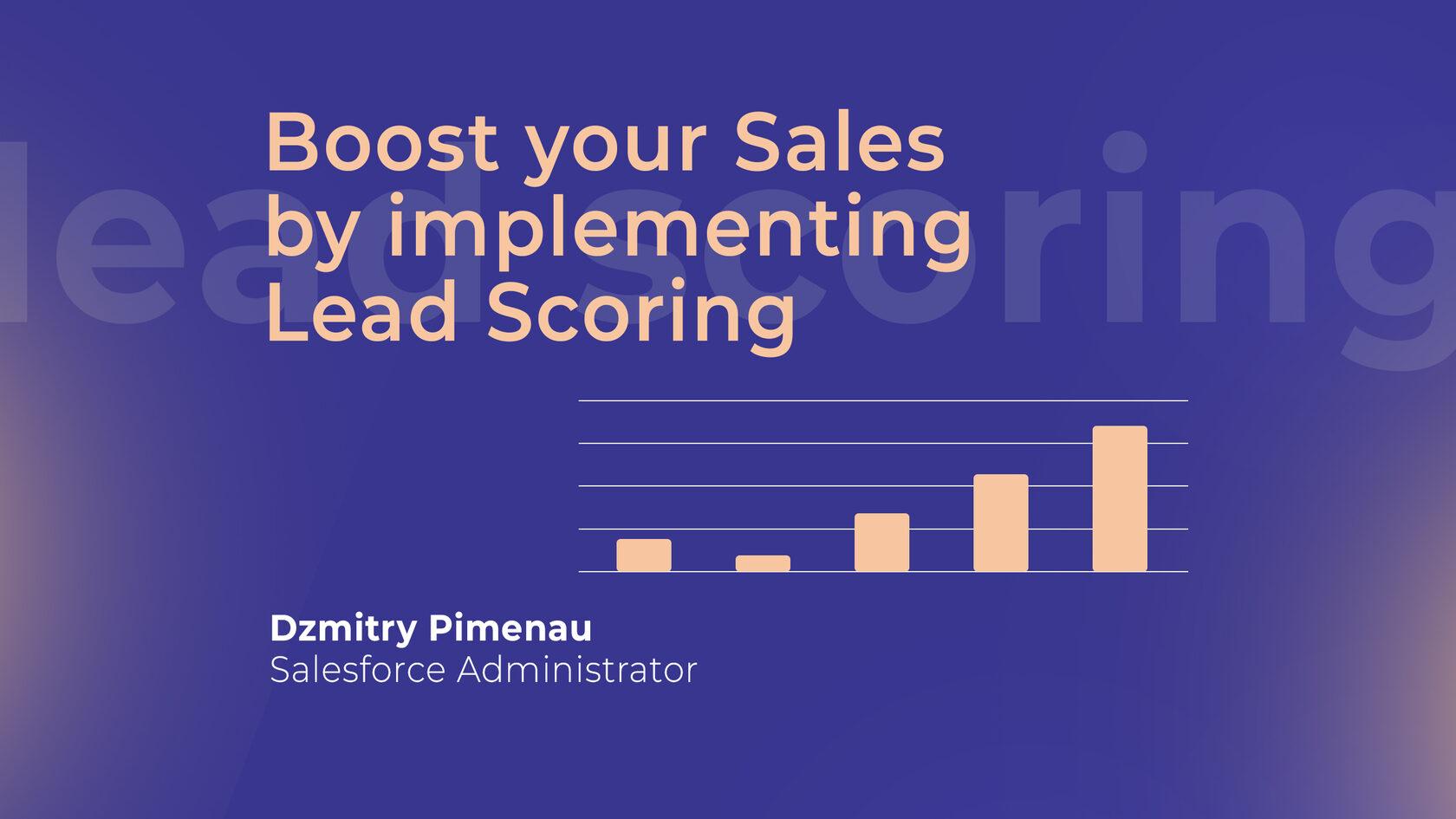This article is prepared by our Salesforce Administrator Dzmitry Pimenau.
Imagine dramatically boosting your sales efficiency by focusing only on the leads most likely to convert. If only there was a simple way to identify the most willing customers, ready to close a hot opportunity here and now, at exactly the right time.
What if you could optimize your marketing activities and increase your return on investment (ROI) effortlessly?
Now this isn't a distant dream — it's the reality of lead scoring in Salesforce — a game-changing strategy that can transform your business operations and drive revenue growth.
Why Lead Scoring is the secret weapon your business needs
In today's tough market, effective management of potential customers and their conversion is the key to business success. Too many companies get stuck in a rut of low conversion rates and waste precious resources on potential customers that never pay off. This is where the assessment of potential customers comes to the rescue, which saves the day. By ranking leads based on their potential conversion, the lead scoring system allows your sales department to focus on the most promising prospects.
Imagine that you are looking at a sea of potential customers and know exactly which ones are worth your time and effort. Evaluating potential customers helps you do incredible things and transforming your sales approach:
This strategy is not just for big players; companies of any size can benefit from evaluating potential customers. So, if you are tired of chasing after every potential customer without knowing who is really interested, it's time to think about implementing a potential customer evaluation system.
Imagine that you are looking at a sea of potential customers and know exactly which ones are worth your time and effort. Evaluating potential customers helps you do incredible things and transforming your sales approach:
- Sales team focuses their energy on what is really important, fewer useless calls and emails, more deals made.
- Lead scoring also fosters better alignment between teams. Marketing can pass leads to sales knowing that each lead has been rigorously evaluated. Sales teams, in turn, can trust that the leads they receive are worth pursuing, enhancing collaboration and reducing friction between departments.
- Salesforce’s AI-driven tools provide real-time, automated insights, allowing quickly adapt to changing market conditions and customer behaviors. Over a long distance, this helps to understand which leads require more careful study to increase chances of making a sale.
- Customization and Flexibility. Salesforce allows you to create custom scoring models tailored to your specific business needs, ensuring that your lead scoring strategy is always relevant and effective.
This strategy is not just for big players; companies of any size can benefit from evaluating potential customers. So, if you are tired of chasing after every potential customer without knowing who is really interested, it's time to think about implementing a potential customer evaluation system.
What is the mechanism of Lead Scoring?
Lead scoring is a method of ranking prospects based on their likelihood to become customers. This involves assigning values to leads based on various attributes and behaviors, such as demographic information and engagement with your content.
Salesforce leverages both traditional lead scoring methods and advanced AI-driven techniques to provide a comprehensive scoring model. Einstein Lead Scoring in addition uses a global model. The global model uses anonymous data from many Salesforce organizations and it means that data is evaluated based on the experience of millions of Salesforce customers.
There are several types of lead scoring:
Salesforce leverages both traditional lead scoring methods and advanced AI-driven techniques to provide a comprehensive scoring model. Einstein Lead Scoring in addition uses a global model. The global model uses anonymous data from many Salesforce organizations and it means that data is evaluated based on the experience of millions of Salesforce customers.
There are several types of lead scoring:
- Demographic Scoring: Evaluates leads based on personal attributes like job title, company size, and industry. For example, a lead who is a decision-maker in a large corporation might score higher than an entry-level employee in a small company.
- Behavioral Scoring: Focuses on how leads interact with your brand, such as website visits, email opens, and content downloads. A lead that frequently engages with your website and downloads whitepapers may score higher.
- Advanced Scoring: Combines demographic and behavioral data to determine how well a lead aligns with your ideal customer profile. This comprehensive approach ensures that both the lead’s profile and their engagement level are considered.
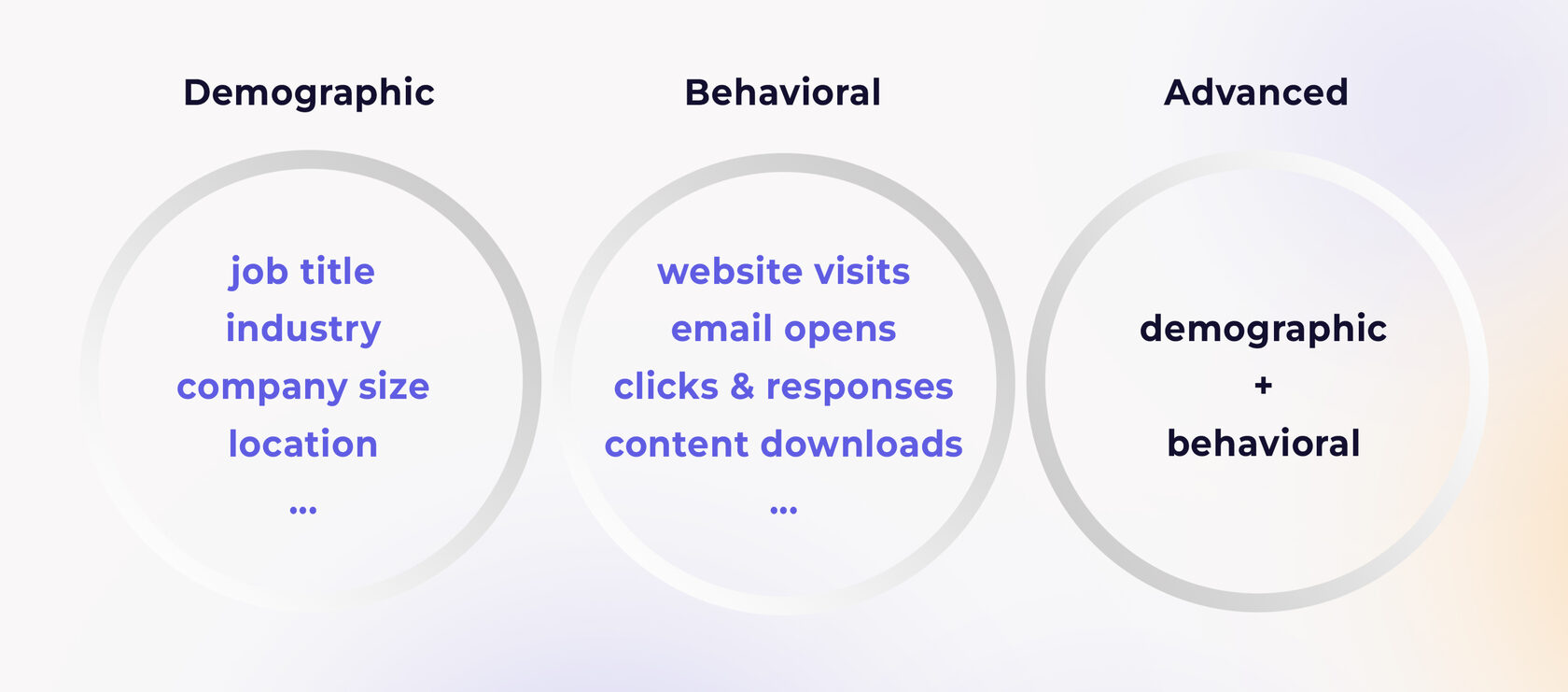
How to configure Lead Scoring in Salesforce
Before enabling Sales Cloud Einstein, Salesforce customers can use the Einstein Value Assessor to learn approximately how much value Einstein Lead Scoring can provide for their company.
Einstein Lead Scoring
Enable Einstein Lead Scoring:
Einstein Lead Scoring
Enable Einstein Lead Scoring:
- Navigate to “Setup” in Salesforce.
- Select “Einstein Lead Scoring” under the “Einstein Sales” category.
- Toggle on Einstein Lead Scoring.
- Wait for a while (up to 48 hours) when Einstein Lead Scoring completes evaluating the leads.
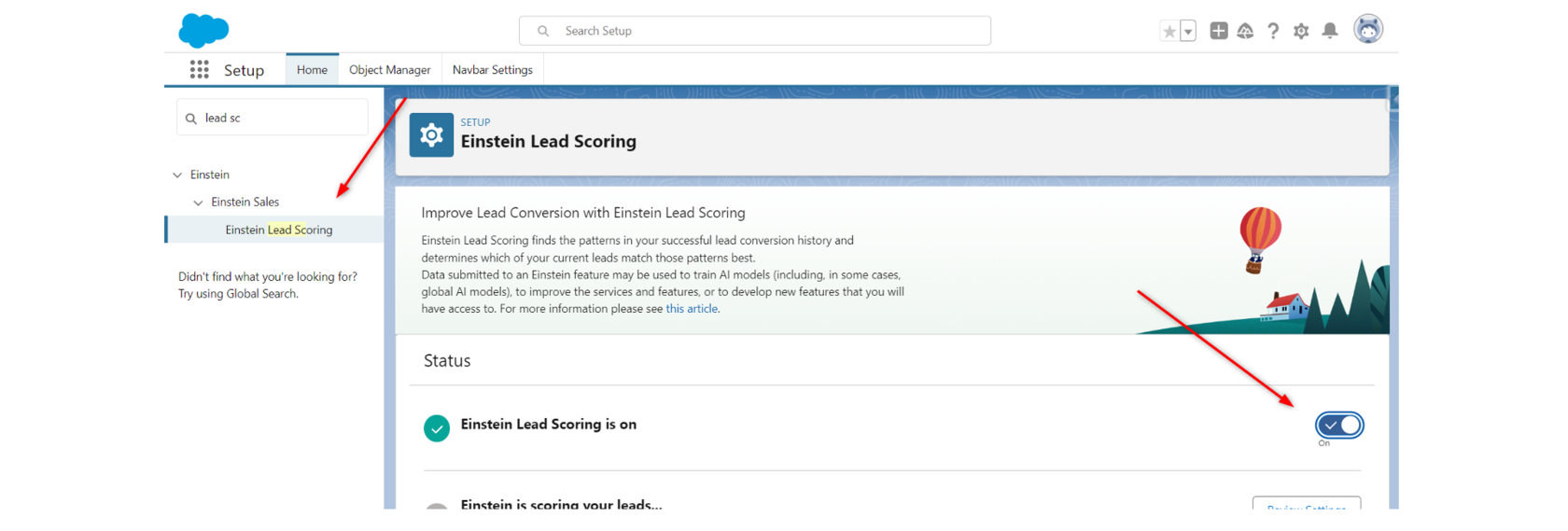
Default vs. Custom Models: Use the default predictive model, or customize it by defining specific criteria and segments that align with your business goals.
Field Selection: Choose the fields and attributes that should influence lead scores, ensuring the model aligns with your sales strategies.
Field Selection: Choose the fields and attributes that should influence lead scores, ensuring the model aligns with your sales strategies.
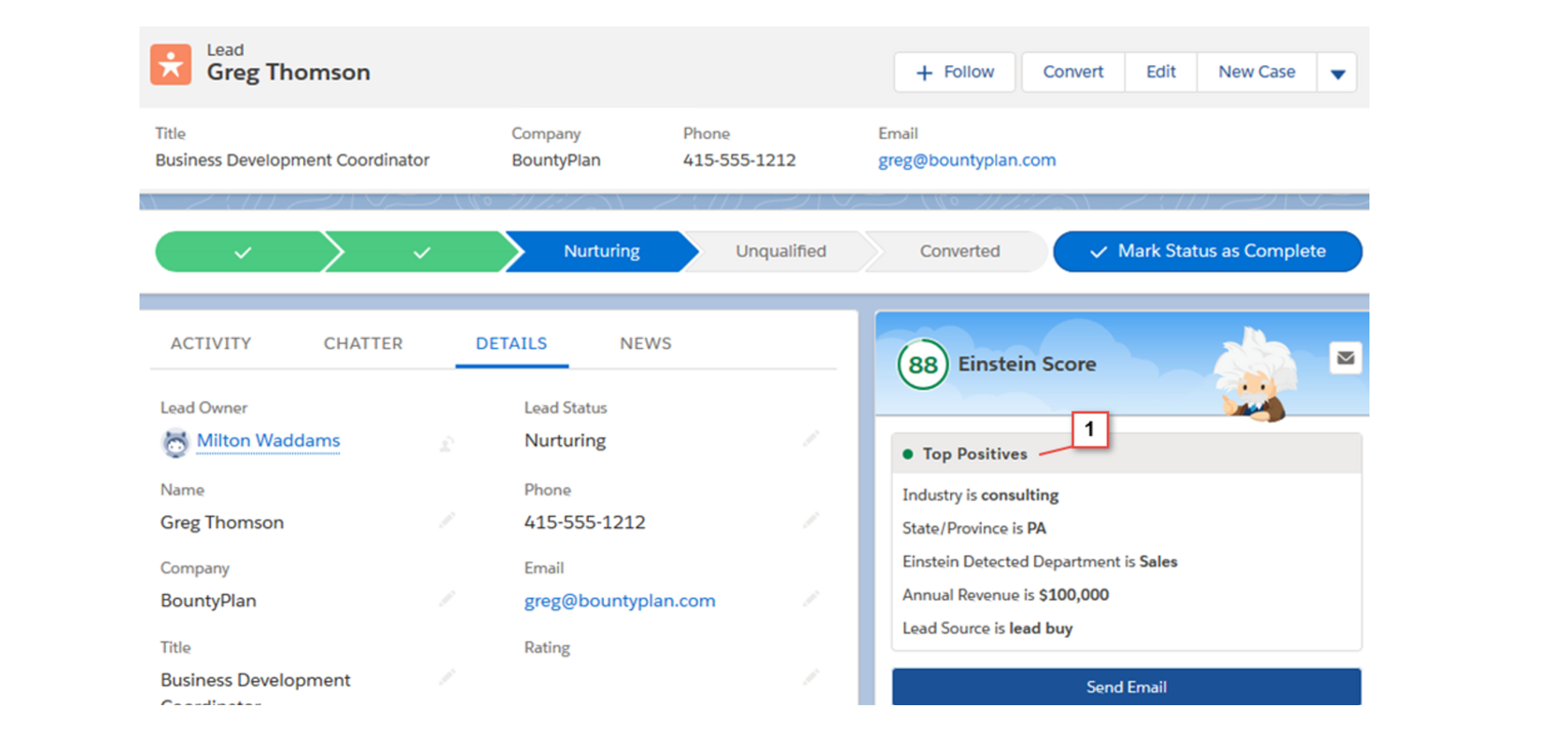
Limitations
- At least 1,000 leads must be created in the last 200 days.
- Of the leads created in the last 200 days, at least 120 must be converted to an account and contact.
- (Optional) Of the leads created in the last 6 months (180 days), at least 120 must be converted to an account and contact with an opportunity created at conversion time.
See more
Marketing Cloud Account Engagement Lead Scoring
Marketing Cloud Account Engagement (formerly Pardot) maintains close proximity and integration with your CRM. This platform is partially on the core Salesforce infrastructure and partially on its own infrastructure, allowing it to dynamically unify development, membership, marketing teams, and other groups that engage with stakeholders.
See more
Marketing Cloud Account Engagement automatically scores leads based on their interactions, such as form submissions and web page visits.
See more
Marketing Cloud Account Engagement automatically scores leads based on their interactions, such as form submissions and web page visits.
- Custom Scoring Rules: Adjust scoring rules to reflect the significance of different actions. For example, a demo request might be worth more points than a simple page view.
- Automated Grading: In addition to scoring, use lead grading to evaluate how closely a lead matches your ideal customer profile based on demographic data.
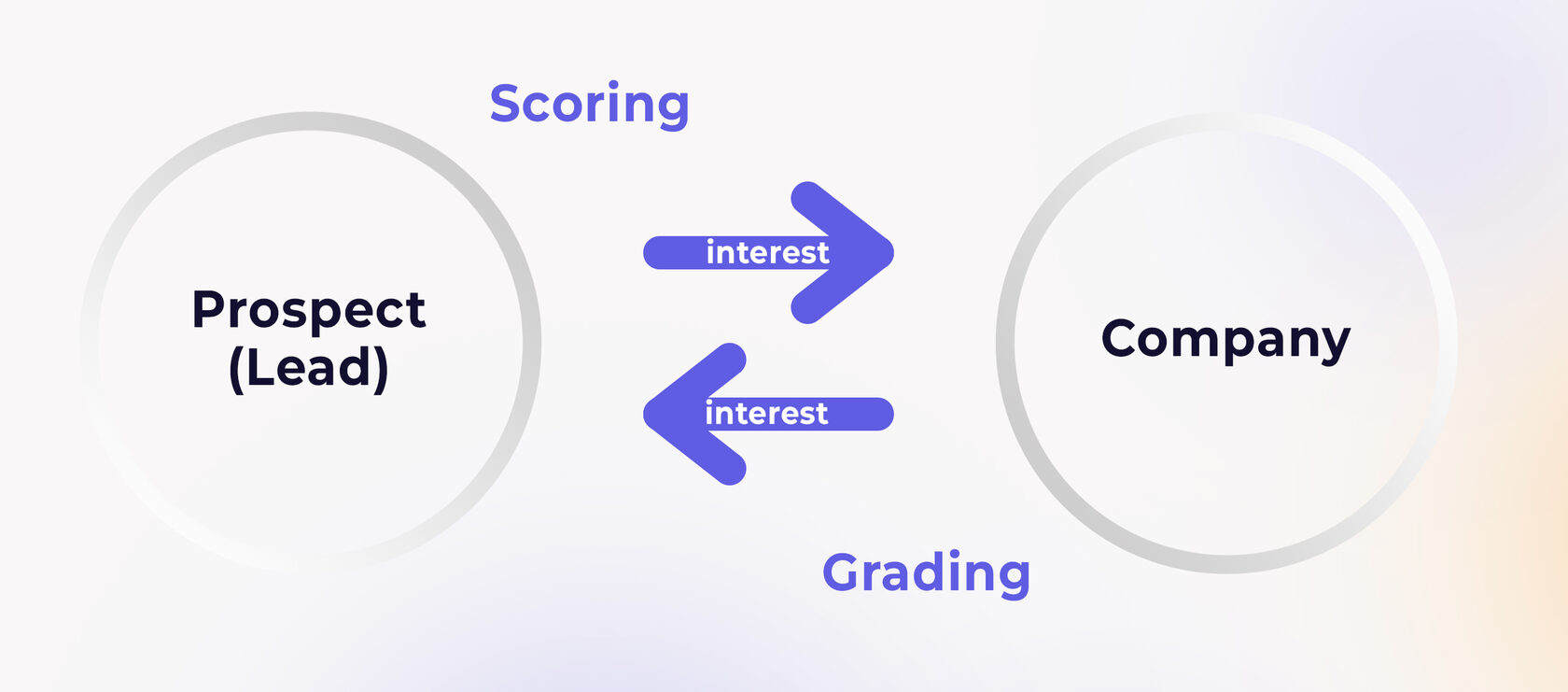
Steps to Implement Lead Scoring in Marketing Cloud Account Engagement:
- Configure Scoring Categories: In Marketing Cloud Account Engagement, navigate to the “Admin” section and select “Automation Settings” followed by “Scoring.” Here, you can create scoring categories that reflect different product lines or business units.
- Define Scoring Rules: Set specific rules for various actions. For example, assign +50 points for a form submission, +10 points for email clicks, and -5 points for bounces. These rules help you quantify the value of each interaction.
- Enable Score Decay: Marketing Cloud Account Engagement allows you to implement score decay, where points reduce over time if a lead doesn’t engage. This ensures that only actively engaged leads maintain high scores.
- Review and Adjust: Regularly review the effectiveness of your scoring model and adjust the rules as needed based on performance data and feedback from your sales team.
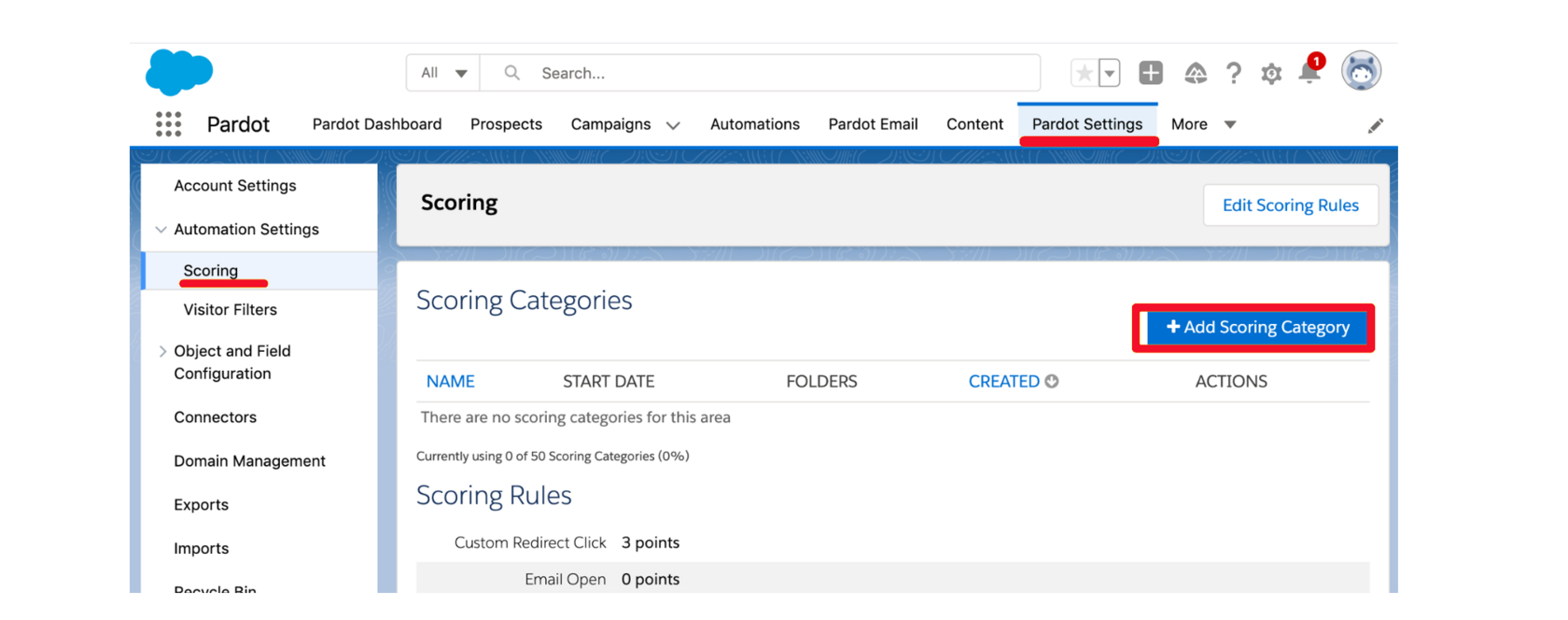
Pricing and Implementation
Pricing can vary based on your specific Salesforce package and additional features.
Salesforce’s Einstein Lead Scoring is part of the Sales Cloud Einstein suite, which may add to the overall cost depending on your subscription plan.
Included in Unlimited, Einstein 1 Sales editions [*]
Salesforce’s Einstein Lead Scoring is part of the Sales Cloud Einstein suite, which may add to the overall cost depending on your subscription plan.
Included in Unlimited, Einstein 1 Sales editions [*]

*as add-on Sales Cloud Einstein [*] which is available for an extra cost in: Enterprise Edition.
Marketing Cloud Account Engagement’s pricing also varies, with packages that start at $1,250 per month for the Growth plan, which includes lead scoring and other marketing automation features [*].
Marketing Cloud Account Engagement’s pricing also varies, with packages that start at $1,250 per month for the Growth plan, which includes lead scoring and other marketing automation features [*].

Continuous improvement and impact measurement
Lead scoring in Salesforce is more than just a tool - it's a strategic approach to maximizing sales efficiency and driving revenue growth. By implementing a robust lead scoring system, Regularly review and refine your lead scoring model to ensure its effectiveness, Collect feedback from your sales team and analyze key performance indicators, you can ensure that your sales team focuses on the most promising leads, enhancing overall productivity and achieving better business outcomes.
By implementing a robust lead scoring system and regularly refining it based on sales team feedback and key performance indicators, you can ensure that your sales team focuses on the most promising leads, thereby enhancing productivity and achieving better business outcomes.
By implementing a robust lead scoring system and regularly refining it based on sales team feedback and key performance indicators, you can ensure that your sales team focuses on the most promising leads, thereby enhancing productivity and achieving better business outcomes.


